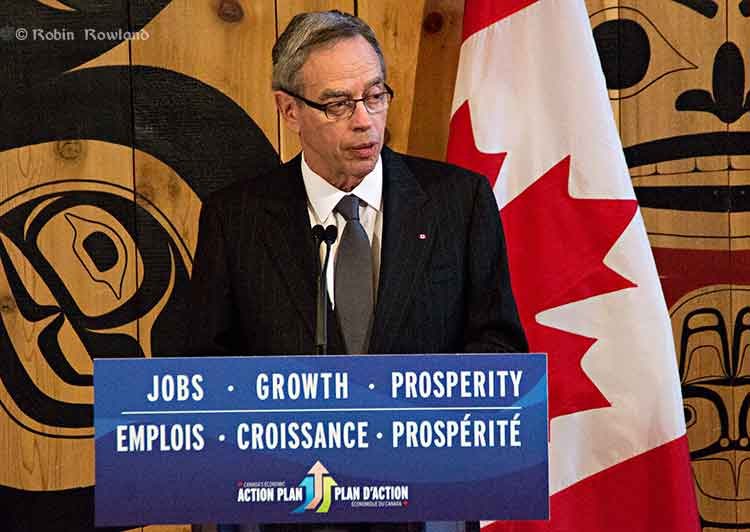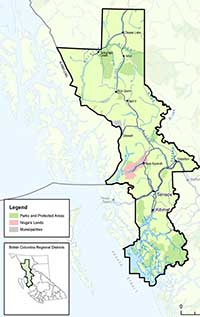
Joe Oliver, the Minister of Natural Resources, has confirmed that the federal government intends to make Kitimat a public port.
Oliver was in Terrace, March 19, 2013, to announce the appointment of Vancouver lawyer Douglas Eyford as “Special Federal Representative on West Coast Energy Infrastructure.” Eyford’s job will be to “engage aboriginal communities in British Columbia and Alberta that are most likely to have an interest in West Coast energy infrastructure.”
Oliver was asked to confirm statements on the Transport Canada website that Kitimat would become a public port.
Oliver replied: “The news release was accurate. What the purpose is to make sure that the absolute highest standards of marine safety apply in the port of Kitimat. And we have as I announced yesterday and I had spoken about before at the port of Vancouver we have an extremely robust marine safety regime in place but we want to make sure that as resource development continues and as technology improves, we are at the world class level. As I also mentioned there has never been off the coast of British Columbia a major tanker spill and we want to keep that perfect record.”
No visit to Kitimat
Oliver was also asked if he intended to visit Kitimat during his visit to the northwest (Kitimat is a 40 minute drive from Terrace). Oliver replied, “Not in this particular visit, I have to get back [to Ottawa] There’s a budget coming and I have to be in the House for that but I certainly expect to be going up there.”
The federal budget will be released on Thursday.
At Monday’s meeting of District of Kitimat council, some members quietly expressed frustration, to say the least, that Oliver, the man responsible for pushing the Northern Gateway pipeline through British Columbia to Kitimat had not bothered to include the town in his visit to the northwest.
Members of the District of Kitimat council, which on paper at least, is responsible for the port of Kitimat (even though it is really run by Rio Tinto Alcan) also expressed frustration that no one in Ottawa gave the council advance notice of the government decision to take the port public.
Asked for comment on Oliver’s statement, Rio Tinto Alcan officials in Kitimat also seemed unaware of the government announcement and promised a statement in the near future.
Oliver’s announcement in Vancouver Monday about a “world class” marine safety system and today’s announcement about the appointment of Douglas Eyford, appear to be a campaign by the Harper government to establish a stake in the middle ground in the pipeline debates, in hopes of undermining the opponents of the projects.
Skeena Bulkley Valley MP Nathan Cullen, in a news release, expressed reservations about Eyford’s appointment.
“The primary concern with the appointment, Cullen said, is that Mr. Eyford will report to the Prime Minister, not to Parliament or the public. “So, if Mr. Eyford’s report is in any way unfavourable to the Conservative pipeline agenda, what assurances do we have that his report will make its way into the public eye?
“It is also unclear how the appointment would affect Eyford’s work as the chief government negotiator for the federal government’s comprehensive land claims process, and what kind of effect his absence will have on that process.”

